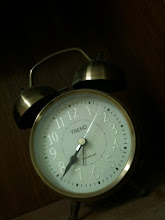History: (hypothetical) A 24 year-old lady presented with complaint of mass over suprapubic region.
Further history: Onset? Is it single mass or multiple? Any associated symptoms? Such as dysmenorrhea, menorrhagia, or pain over the private part? Constitutional symptoms (fever, loss of appetite, loss of weight) - possible : ?
germ cell tumor in young women? Abdominal distension? Swelling over other part of body? e.g.
Virchow's node (enlarged and hard lymph node at left supraclavicular area - common site for metastasis from abdominal/pelvic CA). Sexual history: ever had sexual intercourse? When is the last menstruation (possible - ?ectopic pregnancy)?
Physical examination (abdominal + 'lumps & bumps')
General condition: Alert? In pain or comfortable? Cachexic? Pallor?
Abdomen: Observe for mass; or distension, everted/flat umbilicus (ascites). Palpate for mass, ascites. After that, move on to describe the suprapubic mass (site, shape, size, uni- or multilocular, well-defined edge, central or lateral, can get below? mobile or fixed? - to differentiate between ovarian and endometrial origin).
Complete the examination by checking left supraclavicular region for Virchow's node as well as breast examination - mention only, examine only when you are asked to do so.
Investigation - Full blood count; mainly to look for evidence of anemia.
- Renal profile, liver function test (to rule out other causes of ascites; hydronephrosis, liver metastasis)
- Tumor markers: CEA (usually CA colon, CA rectum) , CA125 (normally serous type, non-specific; irritation of peritoneum).
- alpha fetoprotein - for germ cell tumor in young patients.
- Ultrasound scan; doppler's - echogenicity to differentiate between benign cyst and malignancy.
Differential diagnosis: ovarian cyst, ovarian tumor (germ cell tumor), endometriosis, leiomyoma, molar pregnancy, ectopic pregnancy (less likely, because patient will come with different complaint)
Further managementSurgical intervention (exploratory laparatomy). Surgico-pathological staging ('washing'cytology, liver surface, peritoneal cavity) - if normal = 1a, if presence of tumor = 3c. Even if 1a, lymph node biopsy is required to confirm the staging. If already 3c, plan for adjuvant chemotherapy post-operatively.
If patient has completed the family, opt for TAHBSO, omentectomy, and
cytoreductive procedure for enlarged lymph nodes - in advanced stage of ovarian CA.
Post-operative - Chemotherapy if confirmed stage 3c. (cis-platinum)
- Long-term follow up: observe, CA125 (if raised, do a CT-scan), any signs and symptoms of recurrence / metastasis. alpha fetoprotein (if confirmed germ cell tumor)
- CT-scan : normally done after completed chemotherapy, and repeated after 1 year unless there is rise in CA125 as mentioned before.
Prognostication - 5-year survival
Palliative care
----------
p.s. This is my personal answer based on what I have been taught. Should there be any mistake, please kindly inform me. It was not meant for academic purposes (such as research study etc.), instead it was just for my revision. Thank you.















